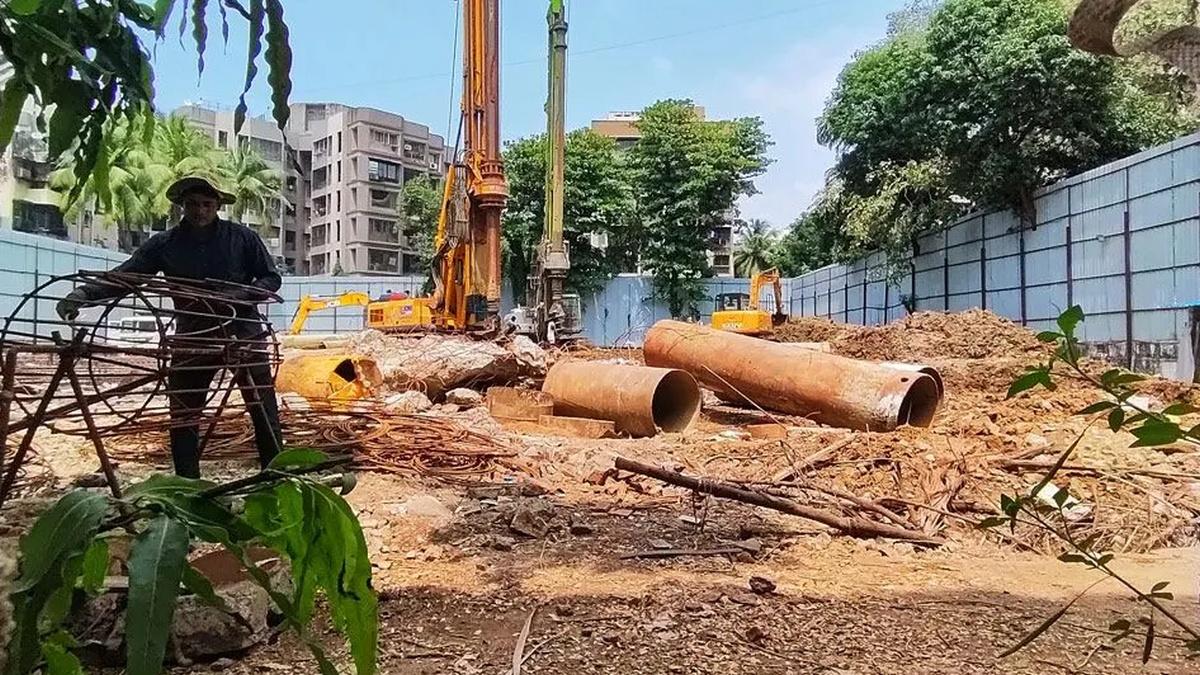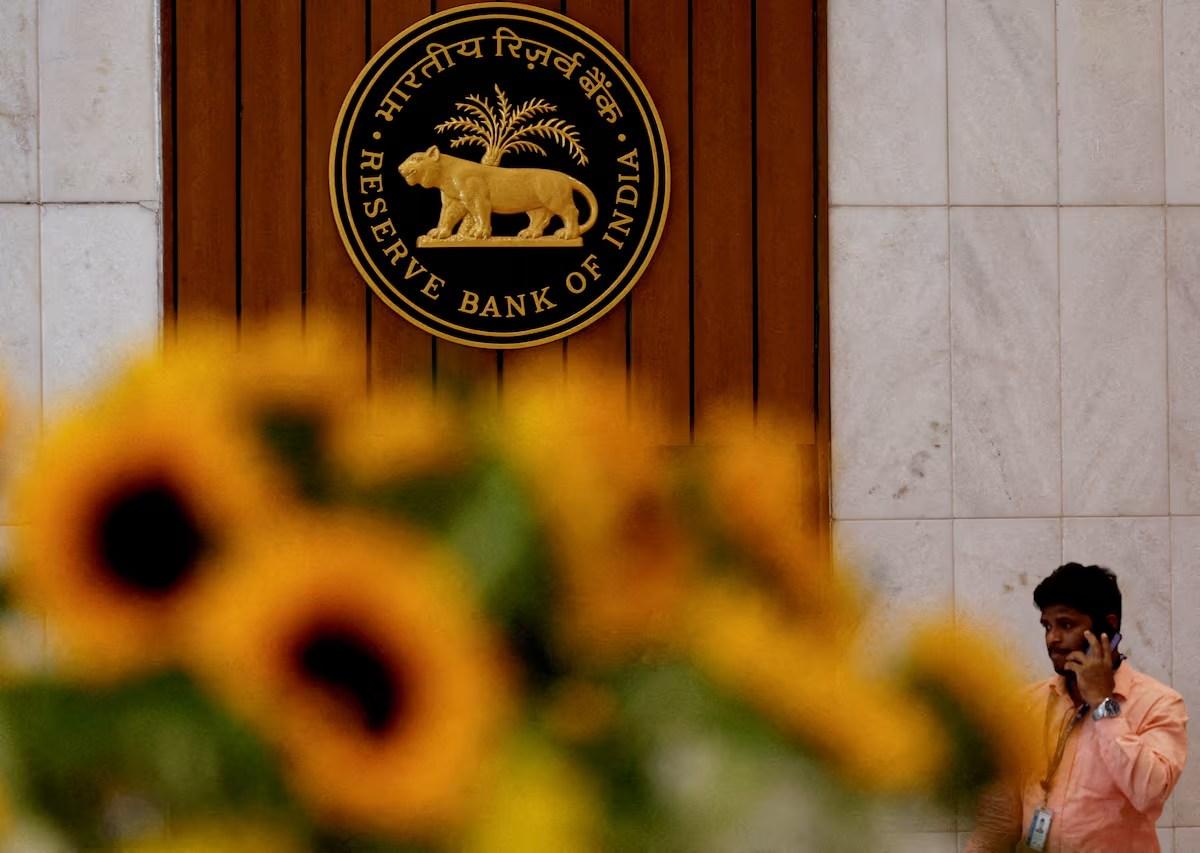‘Every delay directly increases the cost burden on developers. Land holding charges, financing costs, and compliance expenses escalate as approvals drag on.’

Kindly note the images have only been published for representational purposes. Photograph: Hitesh Harisinghani/Rediff
Challenges of environmental clearance in Mumbai region and an evolving e-Khata portal in Bengaluru coupled with lengthy approval processes — that of land use, building plan and layout, fire safety etc — have been hitting real estate developers’ launch schedule, project viability, and balance sheets.
“Land acquisition complexities, delayed environmental clearances, and slower municipal approval processes continued to cause project delays and added execution risk. While regulatory reforms like Rera have improved sectoral transparency, procedural hurdles remain particularly acute for new developments and smaller players,” a recent report by Savills noted.
Pending environmental approvals
According to an order issued by the National Green Tribunal (NGT) in August 2024, environmental clearances for any real estate project with a built-up area of over 20,000 square metres and situated within a 5-kilometre radius of an eco-sensitive zone must be approved by the central government.
The approvals were earlier handled by the state government authorities.
Mumbai Metropolitan Region (MMR) is said to be the most affected market by this decision.
“While the rule permits the Central government in Delhi to appraise applications, they have not been able to have the bandwidth to appraise applications outside of its home state,” said a developer who didn’t wish to be named.
Though the builders’ association Credai-MCHI has filed a petition with the Supreme Court, for a temporary suspension of the order, around 200-250 projects in MMR alone are stuck, industry stakeholders say.
“In terms of the market outlook, Mumbai has indeed experienced a slight slowdown recently.
This can largely be attributed to delays in project launches due to pending environmental approvals, with the Supreme Court expected to deliver its verdict soon.
As a result, sales that would have been driven by these launches have been postponed,” said Sanjay Dutt, MD and CEO, Tata Realty and Infrastructure.
According to Anarock, housing supply in MMR declined by 9 per cent year-on-year (Y-o-Y), while sales declined by 26 per cent on year in the first quarter of calendar year 2025 (Q1CY25).
“This (NGT issue), being a major roadblock, a lot of precise numbers committed by some publicly-listed developers last year could not be achieved as their estimated launches did not happen.
“We also faced similar issues, but we, being a privately held company, did not make any commitments to investors; they were made to our team members internally, which we could not fulfil,” a developer said, on the condition of anonymity.

Photograph: Pawan Kumar/Reuters
Bengaluru’s e-Khata: a work in progress
Meanwhile in Bengaluru, the developers faced approval challenges due to the complexities around the e-Khata portal.
E-Khata is the Bruhat Bengaluru Mahanagara Palike’s digital property certificate that maintains property details, aiming for ease in transactions.
Jagadish Nangineni, MD of Bengaluru-based Sobha, during the company’s Q4 FY25 earnings call, said, “During the approvals, e-Khata is also a part of the process.
“So, that side, there were certain delays experienced by all the developers, those I think would slowly come down.
“E-Khata is an evolving phenomenon. As we progress with time, the adaptation to the new system is continuing to take place both within the government and for the end users or developers.”
Sobha and its peer, Prestige Estates Projects, both missed out on their annual launch guidance for FY25.
Mumbai’s Keystone Realtors (Rustomjee) also missed out on its annual launch guidance.
Deepak Rastogi, Group CFO, Puravankara, said, “We had delays in terms of getting the approvals, and hence, the handovers were actually delayed.
While FY25 post challenges in the former deferred launches and approval delays, we made decisive investments in land and business development that have strengthened our growth runway.”
Further, assembly elections across Maharashtra, Telangana, Karnataka, Haryana, Delhi, and the general elections across FY24 and FY25 added to the developers’ challenges.
“In the last 24 months, most of the developers have gone wrong on approval time. On average, every developer might have faced a six-month delay for different reasons,” the stakeholder added.
The clearance steeplechase
According to Anuj Puri, chairman, Anarock, an average real estate project needs land title and land use permissions, approval for the building plan and layout, fire safety clearance, environmental clearance if applicable, the commencement certificate from the local authorities, no objection certificates from the authorities administering water, sewage, and electricity supplies in the area.
According to Vijay Agrawal, MD, investment banking, Equirus, of the total cost of a project, the approval cost is at least 0.5 to 1 per cent.
“The approval fees have increased. They have become a big component, particularly in Mumbai,” he added.
Approval delays lead to extended project timelines, cost overruns, and financial strain for both developers and their customers, impacting the project viability and a developer’s balance sheet.
“Every delay directly increases the cost burden on developers. Land holding charges, financing costs, and compliance expenses escalate as approvals drag on.
“In key markets, pre-construction delays often stretch for over a year, inflating project costs and compressing profit margins,” said Keval Valambhia, COO, Credai-MCHI.
The stakeholders are expecting the approval-related issues to be resolved by September 2025 and a spree of supply to hit the market in the second half of FY26, a traditionally strong period for real estate.
The roadblocks
* Complications around environmental clearances and e-Khata portal posing challenges for approvals
* Lok Sabha elections and several Assembly polls in FY24 and FY25 also caused delays
* Around 200-250 projects in MMR stuck
* Listed players like Sobha, Rustomjee, and Prestige missed out on FY25 launch guidance
* Spree of launches expected in H2FY26




